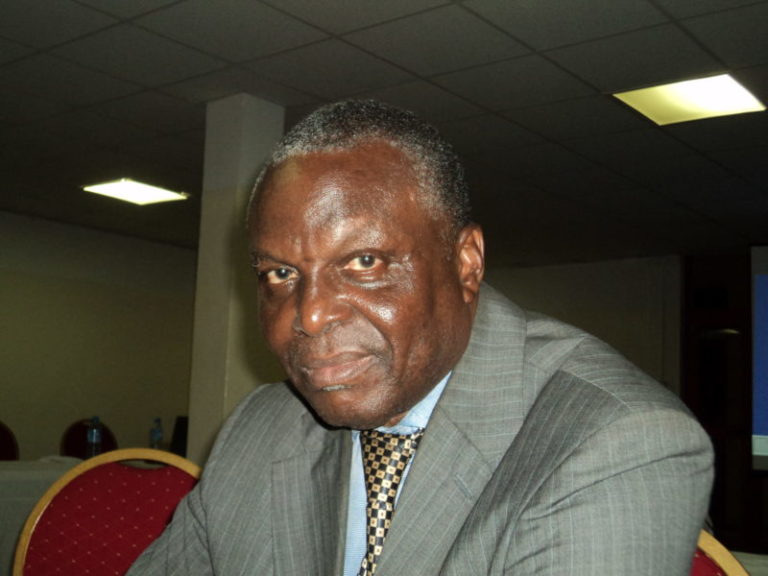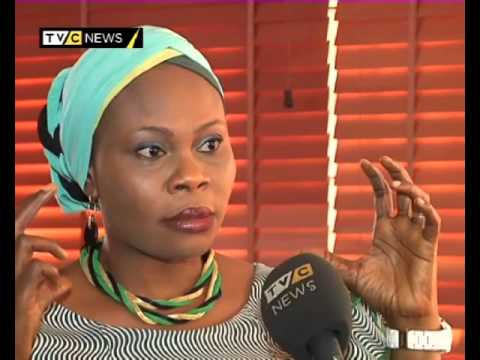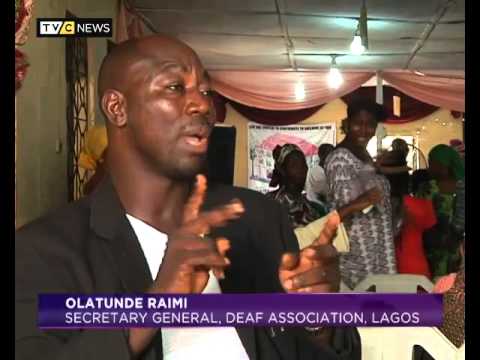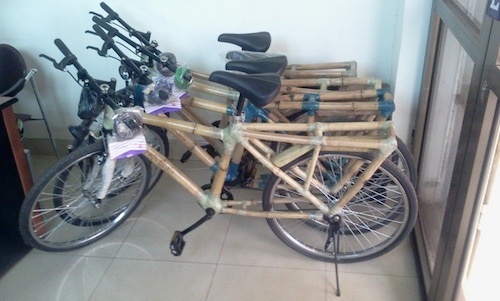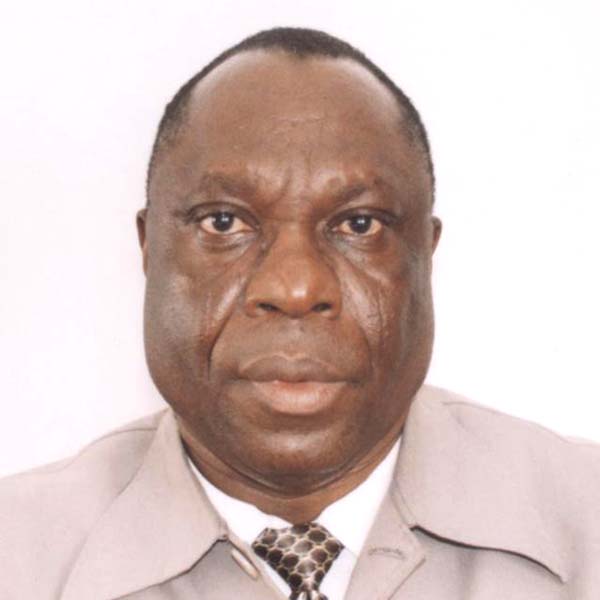S
Ahead COP21: France seeks partnership with oil producing nations
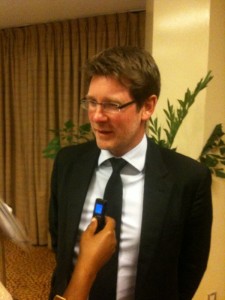
Oil producing countries in Africa have been urged to partner on climate change. This will provide the synergy needed to promote acceptable international best practices in oil production and services across the world.
The French Minister of Development, Pascal Canfin, stated this recently in Abuja at a dinner during a working visit to Nigeria on environmental issues and innovative finance.
“Nigeria can initiate a platform to work with other oil producing countries in Africa. By doing this they can set achievable objectives on gas flaring and oil spills to, say, achieve a 50% reduction in a given year,” he stated.
Describing climate change as critical to national and international development, Canfin said climate partnership in Africa would project the continent’s commitment to issues of climate change in view of the 2015 Climate Change Conference scheduled to hold in Paris.
“My mission in Nigeria is to discuss climate change because France is going to host the big conference (COP21) in 2015 where we are supposed to find decisive global climate agreement. The COP21 is a very important responsibility and is one of the top priorities of the French diplomacy. So we are starting to work on that and we want Nigeria to be a key partner for us in this process.”
The minister also shed light on innovative finance, saying that it was a project aimed at finding new sources to finance development.
He said: “We are working with Nigeria and 40 other countries across the world to have commitments in order to implement new mechanisms to finance spending in terms of healthcare, education and to fight poverty, etc. It is development taken in a very broad sense but dedicated and focusing on local communities. France took a lot of decisions on innovative finance.
“For instance, we decided to tax on our financial transactions in Paris and we allocate 15% of this tax to finance fight against poverty in developing countries. We are able to finance free access to health care for five million people in the Sahel region, Senegal, Chad, Niger and Mali. France is the very first country to take such step in the world.”
In the same vein, the Ambassador of France to Nigeria, Jacques Chanpagne De Labriolle, disclosed that his country was working to reinforce relations in every field of bilateral engagement with Nigeria.
“The issue of development and climate change are issues that are very important to everyone in the world. This is what we call global issues. And because they want to work more closely in the future, France and Nigeria are trying to work together on issues of climate change.”
De Labriolle said France remained committed to the fight against climate change and was willing to support Nigeria in that regard. He remarked that he also believed that the outcomes of oil production such as gas flaring in the Niger Delta area of Nigeria can be managed to provide electricity for that region.
“We have realised that one of the group of countries that can help the international community to work together is the group of the oil producing countries, as part of the problem of the oil producing countries is that there is associated pollution. And as they have an important income from oil we believe that they should get together to address the consequences of climate change linked to those entire phenomenon that are provoked by the use of hydro-carbon,” he concluded.
By Nkechinyere Itodo
COP 19: From Lekan Fadina to Hamzat Lawal
During the 19th Session of the Conference of the Parties (COP 19) to the United Nations Framework Conventions on Climate Change Conference (UNFCCC) that held last November in Warsaw, Poland, two Nigerians easily caught my attention. One is in his sixties; the other in his twenties. Both had an aura of ingrained climate passion exuding from their restless personalities. And because they belonged to different generations and yet spoke the same language and radiated similar urgent climate appeal, my encounters with them ultimately drove home the point that, in our local struggle against current ecological problems, Nigeria needs a workable mentoring method, and all relevant policy structures, that will enhance a bridge between old rugged wisdom and new teething knowledge.
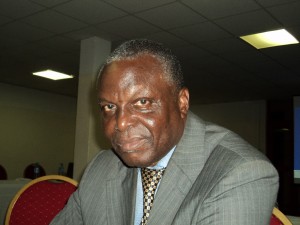
Prince Lekan Fadina, a climate change, sustainable development and finance specialist, is a negotiator who has been representing Nigeria in these climate talks for more than a decade now. At Warsaw, it was easy to notice the elderly Nigerian dutifully walking from one meeting room to the other. Being a negotiator for finance, he was able to set the records straight concerning the paranoia that was prevalent at the end of the COP, especially concerning the Green Climate Fund which, because it has not been operationalised yet, was latched on by pessimists to give thumbs down to the whole process.
According to Fadina, instead of being a flop, the Fund is actually a work-in-progress. The timeline for the fund is 2020, and it is still seven years ahead. What is significant is that the Resource Mobilisation Process is on-going with the initial guidelines being put in place. The Fund now has its head offices hosted in South Korea and a Tunisian, Ms Héla Cheikhrouhou, is the Secretary. The Agreement between the Republic of Korea and the Green Climate Fund regarding the Headquarters of the Green Climate Fund was signed in Bonn, Germany, on 2 June 2013 and in Songdo, Incheon, Republic of Korea, on 10 June 2013. The agreement entered into force in accordance with paragraph 5 of Article 20 of the Agreement on 27 August 2013. The opening ceremony of the Fund’s headquarters took place on 4 December 2013 in Songdo. The Secretariat is a fully independent entity.
He said, “Climate change is knowledge based; as a country we need to get competent people to come into the process. For example loss and damage will affect our insurance companies. It is left for Nigeria to find out to what extent it will affect critical sectors in the country. The time has come for our judiciary, our legal system to look at the issue of climate change. This is because climate change has a lot of issues surrounding it, and a lot of issues are coming up and we have to get involved in all the sectors. For example, it has become an issue of gender, an issue of poverty alleviation and now an issue of ICT. Although some of the Nigerian banks have taken up sustainable banking principles, it goes beyond just sustainable banking principles. It has to be put at the centre of our development plans, be it Vision 20:2020, etc. This issue must be integrated in our developmental process.”
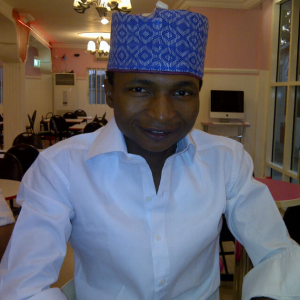
Hamzat Lawal is a young environmental activist who participated in COP 19 as Nigeria’s representative and Fellow in the Adopt a Negotiator project. He joined other representatives from Peru, India, Kenya, China, Fiji, New Zealand, Philippines, Ukraine, Brazil, Middle East, North Africa and Poland. The project is envisioned to directly involve young people in the climate change solutions because they are the ones who will live with the decisions being hashed out in meetings between country leaders. Representing 13 countries and nine different languages, Adopt a Negotiator trackers engage the process with the mission of changing the way citizens from around the world engage in shaping climate change solutions at global level. They make it open and understandable, and “bring a human element to a too soulless process.”
Because many Nigerian youths were denied entry visa into Poland, Hamzat became the face of Young Nigeria at COP 19. When the youths of the world gathered, it was consoling to see his face among them, underlining the fact that, in as much as the Nigerian youth delegation was frustrated, our light could not put out. From Warsaw, Hamzat wrote an open letter to President Goodluck Jonathan, where he appealed to the President to write his name in ‘climate gold’.
“The United Nations Secretary General, Ban Ki-moon, has invited you to join other Heads of State in bringing climate change commitments to the Climate Change Summit in New York in September 2014. If you ascent to this bill (the Climate Change Commission Bill, passed by the National Assembly and pushed to the President’s table since December 2010) before going, you would put Nigeria on an enviable pathway toward building a low carbon economy; strengthening our resilience and bringing together the public and private sector, academia and other critical actors to chart a roadmap for sustainable growth and development for our great country, socially, economically and diplomatically with a guaranteed future for all,” he told Jonathan.
For the relatively few Nigerians who were privileged to participate in the negotiations and side events of the past UNFCCC COP 19 in Warsaw, there is one remarkable lesson to be learnt. The lesson is that there is now an urgent need to bridge the gap between the old and the new generation as a strategy for sustainable development. The Nigerian youth, in his helplessness, feels like a thirsty man in the wilderness who knows there is an oasis a few metres away but nobody is on hand to help him get to that life-saver. The youth’s problem is a bottled frustration of trying to survive alone without any survival kit or manual. From the Polish Embassy in Abuja to the meeting halls in Warsaw, this dilemma was palpable like the dark shadows of an abiding depression. In fact, as other nations’ delegates moved with their youths in tow, it stuck out like a diseased thumb in a healthy hand.
The Polish Embassy in Nigeria embarked on massive visa refusals to duly accredited civil society groups, of whom most were youth leaders and environmentalists, who applied for visas to attend the COP 19. The Embassy’s blanket reason as it denied over 100 visa applications was couched in the ambiguous phrase “…purpose of travel not justifiable…” despite the applicants providing authenticated UNFCCC accreditation letters, a return ticket, and hotel reservations. For anybody present at the Embassy in Abuja, the sight of Nigerian on the streets of Maitama as they waited for their visas was a sad one. It fed into the unspoken intention of the Embassy workers as reason for the massive visa rejection. The picture was that the youths were actually not travelling for the climate talks, but were on the lookout for greener pastures in foreign land and, therefore, would not return to Nigeria at the end of the COP.
But this is far from the truth. Nigeria, despite its many problems, is blessed with a steadily growing crop of young people whose only driving force is helping humanity and making their world a better place with no intention for material gains whatsoever. On that Niger Street, Maitama, were young environmentalists like Zaid Shopeju, Buni Ajilore and other established youth leaders. Shopeju is a climate change campaigner, advocate and sustainable development consultant with over four years of international, regional and national experiences with involvement in different UNFCCC climate talks from Bonn to Doha; recently nominated as a Global Peace Ambassador by the Africa Centre for the Constructive Resolution of Disputes, Durban, South Africa, for his exemplary work on climate change and human rights issues. Ajilore was one of the scheduled key speakers at the Youth Session of the Global Landscapes Forum. With the right youth-friendly policy framework and mentoring culture in Nigeria, these youths and others like them will begin to contribute more to the future of this great nation, both at home and abroad.
By Greg Odogwu
Benefits of hugs
Have you had a hug today? Are you getting enough hugs? Psychotherapists say hugs can be very powerful, on an emotional, physical and mental level.
Dr. Kadiri says there are chemicals and hormones that are released into the blood stream whenever we have a good hug. They include Endorphins, Oxytocin, and Dopamine.
In a nutshell, hugging can improve your heart and prevent heart attack, cure depression, boost your libido to enjoy quality sex. As a matter of fact hugs has numerous health benefits for the overall well-being
As a huger, I wanted to examine how long a hug should last and how many hugs we require in a day.
Watch my report and give someone a hug today
Lagos deaf church
The Christian Holy Book, the Bible says: ‘let everything that has breath praise the Lord’. I witnessed a faithful devotion to this exhortation during a visit to a church for the deaf in Lagos. With drumming and dancing the congregation was full of happiness and joy despite their disability. Watch video…
Nigeria bags second REDD+ programme funding
The Forest Carbon Partnership Facility (FCPF) of the World Bank has approved Nigeria’s REDD Readiness Preparation Proposal (R-PP). The approval was made at the FCPF’s 16th Policy Council meeting that held a week ago in Geneva, Switzerland.
About $3.6 million will be allocated to Nigeria to implement the R-PP.
According to Salisu Dahiru, head of Nigeria’s UN-REDD+ Programme, the main objective of the R-PP is to further improve institutional capacity for REDD+ Governance at the federal level as well as expanding the scope of REDD+ activities to two additional states that hitherto were not part of the initiative.
He did not disclose the states involved.
A couple of years ago, Nigeria accessed a $4 million grant from the UN-REDD, giving birth to the nation’s first REDD+ Readiness Programme that is being implemented within a three-year span (commencing from late 2012), allowing Nigeria to craft the REDD+ mechanism through an innovative, two-track approach consisting of actions at both federal and state government levels.
At the federal level, the programme will create basic technical capacities, develop strategic and policy frameworks for REDD+, and support the alignment of the country with international climate change and environmental negotiations and agreements.
At the state level, the programme will conduct strategy-development and demonstration activities on REDD+ in Cross River State, which Dahiru said
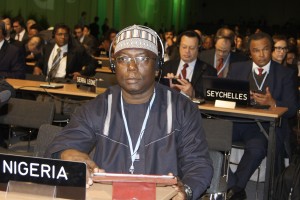
has shown a determined political commitment for green development as well as being home to more than 50 percent of the tropical high forest remaining in the country. The best practice and lessons learned in Cross River will be used to roll out REDD+ in other states across the country.
Dahiru explained why the nation sought the FCPF financing: “In view of the scale of Nigeria and the complexity of developing a REDD+ system for the entire country, which has a federal structure with 36 states, the UN-REDD support needs to be coupled with additional financial and technical assistance, notably to reinforce the federal-level REDD+ capacities and to expand REDD+ to new states (using the best practice, models, policies and measures that Cross River State will develop and test). Nigeria is a member of the FCPF and FCPF co-financing seems necessary for the country to further its REDD+ process.”
REDD+ implies Reducing Emissions from Deforestation and forest Degradation plus conservation, sustainable management of forests and enhancement of forest carbon stocks.
Just like the UN-REDD (United Nations Collaborative Programme on Reducing Emissions from Deforestation and Forest Degradation in Developing Countries), the FCPF is a window to finance the REDD+ programme.
The UN-REDD is a collaboration involving the United Nations Development Programme (UNDP), United Nations Environment Programme (UNEP) and the Food and Agriculture Organisation of the United Nations (FAO).
UN decorates outstanding environment-friendly initiatives

Seventeen activities that serve as shining examples of the enormous groundswell of action underway across the globe to address climate change were honoured on Wednesday at an Oscar-like ceremony at the United Nations Climate Change Conference in Warsaw, Poland.
Selected from a pool of 252 worthy applications, the 17 Lighthouse Activities honoured at Wednesday’s ceremony were:
* Australia: 1 Million Women, building a movement to get one million women to take small steps in their everyday lives to cut greenhouse gas emissions
* Bangladesh: Climate Change Adaptation and Disaster Risk Reduction, a women-centered initiative to address extreme weather conditions in vulnerable communities
* China: The China CDM Fund, supporting low-carbon growth and climate resilience through levies on clean development mechanism projects
* Ghana: Recycle not a Waste Initiative, empowering street youth to turn recyclable waste into a low-carbon business opportunity
* Ghana: Bamboo Bikes Initiative, women leading on climate change by building high-quality bamboo bicycles
* Multi-regional: Redavia, leasing affordable solar farms without up-front capital investment or long-term obligations
* Multi-regional: The Adaptation for Smallholder Agriculture Programme, spearheaded by the International Fund for Agricultural Development (IFAD) channeling climate finance to smallholder farmers to build their resilience to climate change
* Guatemala: Alliance for International Reforestation: Women Farmers in Guatemala, planting trees to sequester carbon and improve farming techniques
* India: Pollinate Energy, bringing solar energy to Bangalore’s slums while creating green jobs
* India: Community Based Micro Climate Resilience, building flood-resilient and affordable homes
* Kenya: The BOMA Project, enabling vulnerable women to adapt to climate change by building small businesses
* Liberia: Fostering Innovative Sanitation and Hygiene, providing fecal sludge management services in poor areas, capturing biogas and reducing methane emissions.
* Mexico: ECOCASA, unlocking financing to build low-carbon housing and increase the number of “green” mortgages.
* Mozambique: Public Private People Partnerships for Climate Compatible Development, empowering the urban poor to design and implement activities to adapt to climate change
* Philippines: Sustainable Energy Finance Program, an innovative financing scheme to unlock resources needed to address climate change
* South Africa: Food & Trees for Africa, fostering women’s leadership through planting trees and raising awareness about climate change
* Sudan: Low Smoke Stoves Project, providing mico-financing opportunities to replace polluting cook stoves with energy-efficient cook stoves
The 2013 Lighthouse Activities were selected by a 16-member, international advisory panel as part of the secretariat’s Momentum for Change initiative, which is funded by the Bill & Melinda Gates Foundation and The Rockefeller Foundation, and operates in partnership with the World Economic Forum.
Fulfill water, sanitation commitments, report urges Nigerian govt

As the World marked this year’s World Toilet Day on Tuesday, a new report jointly published by the Water Supply and Sanitation Collaborative Council, WaterAid and Unilever has called on governments, including that of Nigerian, to keep their promises and implement the commitments made at national, regional (AfricaSan, SACOSAN) and global levels (Sanitation and Water for All).

“This explains why 35 million Nigerians still defecate in the open, about 90 million are without access to safe drinking water, and 130,000 under-five Nigerian children die annually from preventable water borne disease,” he added.
Oladipo: Why Nigeria needs climate commission
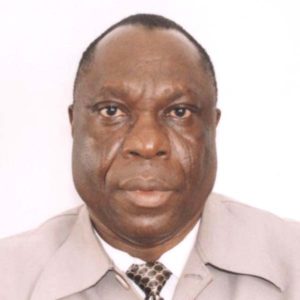
An environmentalist, Professor Emmanuel Oladipo, has said that Nigeria still has a lot to do in terms of protecting the environment.
Oladipo observed that there is desert encroachment up north of the country while gully erosion was fast degrading and destroying the environment.
Professor Oladipo who once taught Geography at the Ahmadu Bello University Zaria, called for an immediate establishment of what he calls “ Climate Change Commission or Agency” to handle climate change in Nigeria with every sense of seriousness.
He argued that Nigeria exists and lives in a limited and fragile environment made up of many components requiring a great deal of management for its preservation, warning that “the environment is very critical and determines whether we survive or not”.
He also observed that land does not grow, but that the Nigerian population is growing at an alarming rate thereby posing more danger ahead.
Oladipo, who represented Nigeria on the Global Committee on Science and Technology of the United Nations Convention to Combat Desertification (UNCCD), said desertification is not only due to changes in climatic conditions but also a function of how humanity manages the environment.
“The more we utilise a particular land to get products out of it over and over without putting back into that land, definitely reduces its productivity. If we continue to use the land this way with the several climatic changes taking place, the land will not yield much and therefore becomes degraded. In some instances it is washed away and becomes mere sand. The wind piles this up and turns to sand dunes. So desertification is the gradual process of the inability of humanity to use land in a productive and sustainable way. In some parts of the extreme north of Nigeria, the land has been totally degraded,” he explained.
“Otherwise after a while, like we have in some areas of Maiduguri now, even digging wells will not give us water any more. And. So my interest has been to help propose ways by which to manage our land in which government has to really greatly invest to ensure that agricultural practices in these parts of the country are not withering the land to the extent that it becomes completely degraded,” he added.
Nigeria is party to the United Nations Framework Convention on Climate Change (UNFCCC). The body, over the years, has worked to bring to global agreement to reduce the amount of greenhouse gas (GHG) emissions which are responsible for the increasing changes in climatic conditions witnessed around the globe today. As a result of being a member of this Convention, there are many obligations that Nigeria has to fulfil.
The National Communication to the UNFCCC was one of such obligations that Nigeria had to fulfil on climate change. Professor Oladipo also facilitated the production of that first communication to the UNFCCC. He remarked that though Nigeria has made appreciable achievement on climate change, much was still being expected from the country.
“It is true that Nigeria currently has now a National Policy on climate change and has a National Plan of Action to Respond to Adaptation. However, policies are not enough. The implementations are very critical and that is where the country is not pushing enough. A lot of attempts have been made to create a climate change commission or agency for government to attach a significance importance to issues of climate change. Two times, the House has passed the bill, but the Presidency has not accented to it. Establishment of this commission or agency would demonstrate to the world that Nigeria is serious on issues of climate change,” Oladipo explained.
It is recalled that last year, Nigeria witnessed devastating effects of flooding. Part of the cause of the flooding can be linked to changes in the climatic condition.
“There is the need for Nigeria to look inwards as a nation and put in place strategic action plans that can help the country adjust to changes in the climatic conditions. It is worthy of note that a recent report by the Inter-governmental Panel on Climate Change (IPCC) demonstrates that Nigeria is not likely to be out of the woods yet as far as climate change is concerned,” he concluded.
By Nkechinyere Itodo
Will decision on REDD+ emissions verification emerge in Warsaw?
 Louis Verchot is normally an optimist, but even he is doubtful: “It’s been four years since the debate on measuring, reporting and verifying (MRV) carbon emissions started and yet we still see disagreements on how to make decisions.”
Louis Verchot is normally an optimist, but even he is doubtful: “It’s been four years since the debate on measuring, reporting and verifying (MRV) carbon emissions started and yet we still see disagreements on how to make decisions.”

